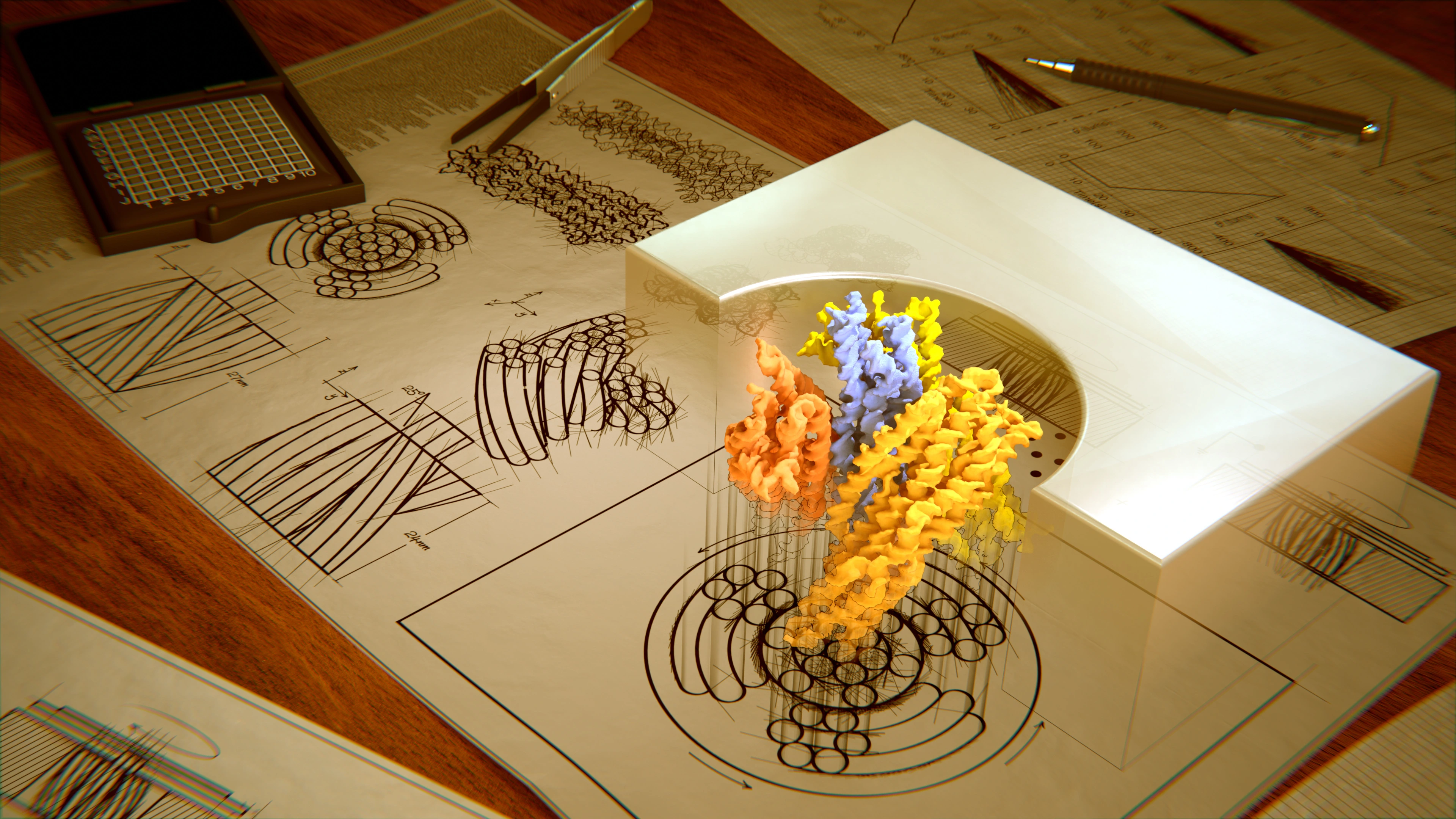Our society relies on machines and engines, and so does life. Molecular motors are widely found in different biosystems, e.g. the famous FoF1 ATP synthase motor that produces the fuel for our cells. Their sophisticated structures and functions established the foundations of the dynamics in the cellular world. The question ahead, for us, is how do we learn from them and can we build such nanomotors ourselves. Can we build such motors at the nanoscale? The fantastic world of biology has given us a positive answer.
Towards this aim, we, together with our collaborators, join forces and combine our expertise in nanofluidics and DNA technology to design, build and drive a DNA-based biomimetic rotary motor in membranes. Much like the intricate and elusive motor proteins in biosystems, these synthetic motors at the nanoscale will shed light on the further understanding of the biological and chemical process of their real-world counterparts and demonstrate the possibility of controlling the directed rotary motion of nanomachinery by the





